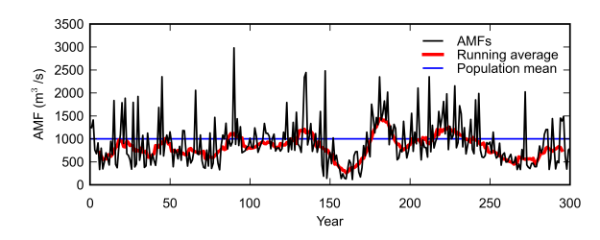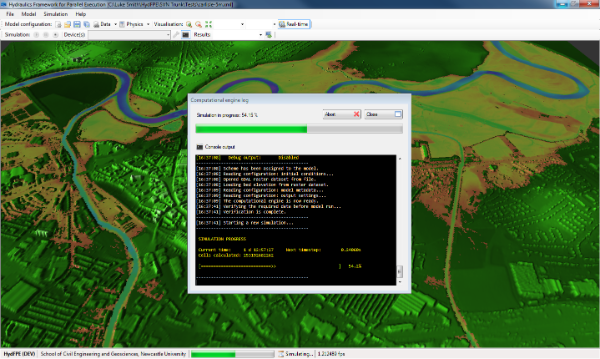WP4: Continuous Simulation
Modelling catchments as Coupled Human and Natural Systems
Contact: Greg O'Donnell g.m.odonnell@ncl.ac.uk
Due to a number of recent high profile flood events and the apparent threat from global warming, governments and their agencies are under pressure to make proactive investments to protect people living in floodplains. However, adopting a proactive approach as a universal strategy is not affordable. It has been argued that delaying expensive and essentially irreversible capital decisions could be a prudent strategy in situations with future uncertainty. Monte Carlo simulation is used to explore the performance of proactive and reactive investment strategies using a rational cost-benefit approach in a natural system with varying levels of flood clustering/interannual variability in Annual Maximum Floods.

Annual Amaximum Floods, with persistence (generated using ARMA(1,1) model))
Continuous simulation and inundation framework
Contact:Qiuhua Liang at Qiuhua.Liang@ncl.ac.uk
This WP aims to integrate the fluvial and coastal components of the flood systems developed in other WPs within a continuous simulation framework and use it to calculate series of damages and impacts arising from inundation in the receptor settlements. The continuous simulation framework will be developed using generic methods, where possible, with flexible time-scales to allow high-resolution modelling within events and lower-resolution updating between events. So it will provide (a) clustered time series of extreme driving events, and (b) non-extreme continuous drivers between storm events for updating or simulating “slow” processes for antecedent conditions. A GPU accelerated high-performance hydrodynamic model including sediment transport will be developed and used to simulate a selection of inundation scenarios to provide high-resolution spatial flood depth and velocities for assessing damages in WP5.
